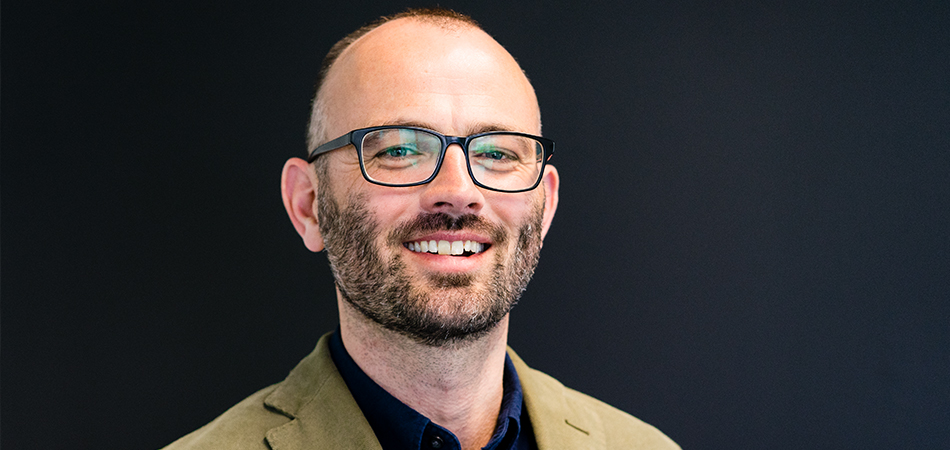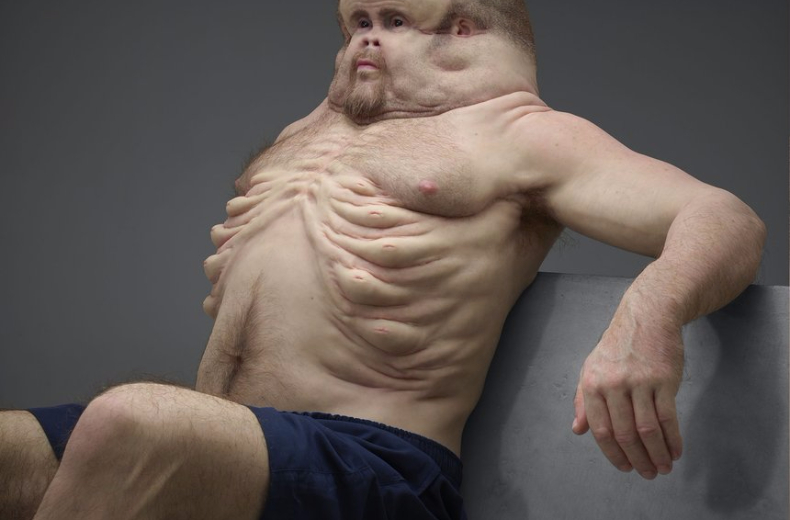
OceanSaver crabs promote plastic-free cleaning products
The campaign by Hearts and Minds, ‘The Ocean will Thank You’ focuses on positivity to encourage sustainable shopping habits
CEO, The Gate London


Career to date:
2017, CEO, The Gate London
2015, CEO, MullenLowe London/DLKW LOWE
2012. Managing Director, DLKW Lowe
2008, Deputy Managing Director, DLKW Lowe/DLKW
2006, Client Services Director, DLKW
2003, Board Account Director, Euro RSCG London
Jamie Elliott: We’re a new team so making that team work really well is the prime focus. It’s a turnaround in that sense; it’s about working brilliantly together and building our culture, which we’re defining as “boundless”.
Three things that’ll make for a successful year are: three new business wins, one piece of head turning work, and making sure that we do better work for all of our current clients.
Jamie Elliott: I started at Euro RSCG Wnek Gosper, which is now Havas London, a long time ago. I’ve actually only worked at 3 places. Next, I went to Delaney, Lund, Knox, Warren. In those two places I went through four mergers. So, DLKW merged into DLKW Lowe and then MullenLowe, where I was CEO before joining The Gate.
My learning from those mergers is simple. Our industry is all about people, people who come up with ideas. They do this best in a team and a team works best within a culture. Mergers are not good for culture.
About half way through my career I did an MBA. I realised that to progress I needed to be able to talk to CEOs, Managing Directors, or people who are starting up businesses, and that it would help to understand that world as well as they do. Also, that if I wanted to run agencies, I needed to learn more about leadership and business administration. It was an incredibly invaluable thing to do and it gave me a massive amount of confidence. But it was also hell.
“Our industry is all about people, people who come up with ideas. They do this best in a team and a team works best within a culture. Mergers are not good for culture."
Jamie Elliott: The unique thing, is that it has never disaggregated creative and media planning and buying – it’s always been ‘full-service’. I don’t believe you can win in the current world without having those two things working together under the same roof, as part of the same proposition.
We also sit within, and on the same floor as, MSQ Group, which is the fastest growing independent group in the UK. It means at arm’s length we have CRM, PR, design and branding, automated marketing, and hardcore digital capabilities, that we can just pull into a project group for a client or a pitch.
I genuinely think we do that quicker than anyone else is capable of doing it at the moment and it’s a bit of a hidden gem. It’s an advantage versus the network agencies who are just finding it incredibly difficult to move at speed doing that sort of stuff.
Jamie Elliott: We haven’t done the piece of head turning work that will define us. We have lots of things going through, but the best thing we’ve done is to win The Electoral Commission. We won the creative and the media planning with our MSQ partners Stack. That’s a strong endorsement of the model; of creative and media working together. To beat people who are much, much bigger names than us in both creative and media arenas, in the same pitch, is a real achievement.
Jamie Elliott: We haven’t paid a massive amount of attention to what’s going on in the industry. We’re a new team and we are hell-bent on making a success of The Gate. Actually, we operate slightly on the periphery of the industry; we don’t go to a lot of ad land stuff and are all the better for it.
It’s a footballing cliché but we do believe, if we look after our game and play our game to the best possible level, we’ll win, and it doesn’t really matter what other people are doing.
That said, I did like ‘Meet Graham’. An incredibly distinctive idea, strong across all channels, that really shifts the way you think about an issue that is really entrenched and difficult to get people to take notice of.
Jamie Elliott: I think Mullen in Boston bring creative and media together very well; the stuff they do for Jet Blue is great. They’re not TV ads, they’re activations, they’re promotions; a series of interesting tactical ideas.
“If you looked at effectiveness campaigns and creative awards, most of them come from longer term relationships. You don't tend to hit gold quickly by just going into a new landscape and mining indiscriminately. So, both sides need to put the work into the relationship."
Jamie Elliott: Yes. I think that the industry is going to go through the most incredible upheaval over the next two to five years. Big global clients are cutting their spends and agencies are therefore having to restructure all of the time. Marcel [Publicis’ new AI bot] is indicative of it; possibly a brilliant move but definitely a cost saving exercise.
I think the world will break into the very, very big players who may well join forces with people like Accenture. Then there will be a real squeeze on the middle, whoever that is, and then there will be smaller, nimbler propositions who can bring a mixture of capabilities together at speed.
So, I think very big with all sorts of added benefits or small and really, really fleet of foot are the two places to be.
Jamie Elliott: We want to be the best people in the market at bringing creative and media thinking together.

Jamie Elliott: Pitching is just part of what you have to do and I still believe that the fundamentals have not changed that much. Clients mostly buy teams of people that they like. It’s why many of the best pitches still have a chemistry meeting because it’s mostly about relationships.
I think having longer relationships is better because you understand each other and you can work and build something together. But, that’s been disrupted by a start-up culture which says, just change things all of the time, bring new people in. This move away from longer-term commitment is a big issue. It’s a massive contributor to diminishing agency margins, this requirement to pitch all the time. This is what we need to rage against as an industry.
Jamie Elliott: It’s six of one, half a dozen of the other isn’t it. If you looked at effectiveness campaigns and creative awards, most of them come from longer term relationships. You don’t tend to hit gold quickly by just going into a new landscape and mining indiscriminately. You might do but it’s pretty unlikely. So, both sides need to put the work into the relationship with the belief that it’ll be more productive.
Jamie Elliott: I graze broadly. I really admire Lena Dunham; Girls is just utterly ground-breaking. She’s so brutally honest about herself and about the world she encounters; it’s terrifying but she has such a fresh and distinctive creative voice.
And, I love listening to podcasts. They’re such a good use of time. Things like The New Yorker Radio Hour, Lena Dunham’s Women of the Hour or Analysis and The Arts & Ideas podcast from the BBC. Adam Buxton does brilliant interviews as do Joe Rogan and WTF’s Mark Maron. There are so many, I could wang on forever about them.
How can brands give customers the tools to express their own identity?
At the IPA Commercial Conference, there was a guy talking who works with high performance athletes. And he made the observation that, “high-performance athletes have a very, very high boredom threshold. They will do the same thing, every day to get better at doing that thing. People in advertising have a very, very low boredom threshold.” This is our strength – because it drives creativity – and our weakness, because we chase the new rather than doing what is proven to work.
I think it’s perfectly reasonable for companies to develop tools (or products) to enable people to express their identity. But, I’m not convinced that’s the role for brands and their communication, or whether that’s the relationship that customers want with their brands. As Jeremy Bullmore [Non-Exec Director, WPP] stated recently, there’s a lot to be said for brands standing a little apart from the customers because it enables them to convey a sense of attractiveness to as many people as possible.
Chasing this sort of thing is an example of us getting bored with, or losing faith in, what we do best - which is helping brands to express their identity and stand-out. We should stick to that.
Looks like you need to create a Creativebrief account to perform this action.
Create account Sign inLooks like you need to create a Creativebrief account to perform this action.
Create account Sign in